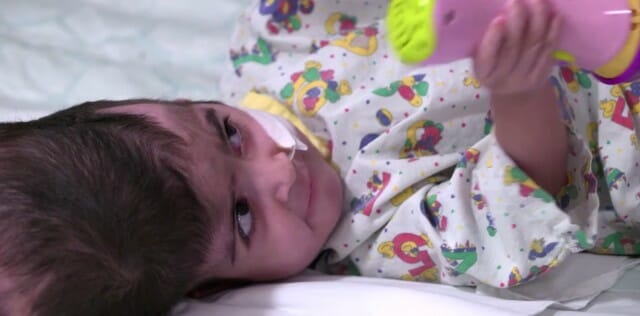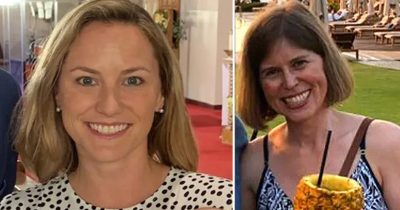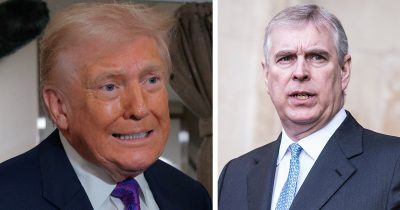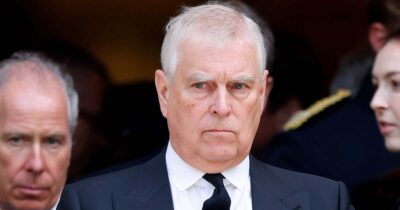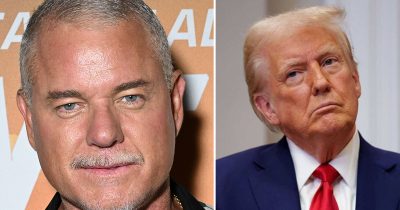
When Zainab Bibi became pregnant with her youngest, she planned on having her twins at home. After all, she gave birth to her other seven children at home with no problem.
But after a scan revealed there might be a complication she was advised to deliver them in a hospital.
And as if the idea that there might be something wrong with her pregnancy wasn’t enough to worry about, Zainab’s husband died of a heart attack shortly before she gave birth.
On January 7, 2017, Zainab gave birth via C-section to twins at a hospital about 30 miles north of her home in northern Pakistan. She was told her babies were healthy, but was unable to see them for several days.
Mohammad Sadat Hussain, the twins’ grandfather, learned the stunning truth. The newborns were born with an extremely rare condition–they were craniopagus twins, conjoined at the head.
“I was happy to see them, but I was thinking what am I going to do with them because of their joined heads?” he told the BBC.
Before Zainab saw her babies she was given a photo to prepare herself, but she didn’t need it. She fell in love with them instantly.
“They were very beautiful and they had nice hair with white skin,” she said of Safa and Marwa, named after the twin hills in Mecca, Saudi Arabia.“I didn’t even think about the fact they were joined. They are God-given.”
The family decided Safa and Marwa would be separated.
The twins spent a month in the hospital before they were discharged. At that time, their family decided they would be separated. They spoke with doctors who said it could be done, however there was a chance one of the girls might die.
The family got in contact with a pediatric neurosurgeon at Great Ormond Street in London (GOSH), a world leader in craniopagus separation surgery, and they began to make plans for life-changing surgery for Safa and Marwa.
In August 2018, the twins and their family arrived in London. They underwent a four month separation process that involved doctors and experts from craniofacial, neurology, and psychology.
Their four-stage journey was anything but easy.
“The first two cases were much more straightforward and we were lucky,” David Dunaway, the plastic surgeon operating on Safa and Marwa, said. “But with this set we underestimated the complexity of the oblique brain joining. Also, they are older and I think older is really bad news.”
GOSH previously successfully separated two sets of twins in 2006 and 2011.
In February 2019, the twins underwent the last stage of the separation process.
Four months after the girls began their journey, a little earlier than planned due to Marwa’s struggling heart, the girls were successfully separated after a seven hour surgery.
“Fantastic,” Dunaway said.
The twins still needed to have their skulls reshaped, but they’ve made it this far.
“It was a very emotional moment,” Dunaway said. “We’ve been working a long time to get them here – they’ve been through so many operations and now it’s worked.”
Finally, on July 1 Safa and Marwa are discharged from the hospital. After a team of 100 experts spent 50 hours performing complicated surgery on them, they are free to go home.
According to BBC, the twins and their family will stay in London for a few months while they continue to receive care, but in 2020 they will return to Pakistan.
“I am very happy. With God’s grace I am able to hold one for an hour and then the other one. God has answered our prayers,” Zainab said.
Four operations, 55 hours of operating time – and a fond farewell! After 9 months of care, the twins and their family left GOSH on 1 July. Safa and Marwa have a long road ahead – but we are hopeful they will be able to live active, happy lives! https://t.co/aKrOCMGu3q ?? pic.twitter.com/pWd6PXcFyq
— Great Ormond Street Hospital for Children (@GreatOrmondSt) July 15, 2019
The twins still have a long road to recovery, but doctors are optimistic about their future.
Share this on Facebook to wish them well!

